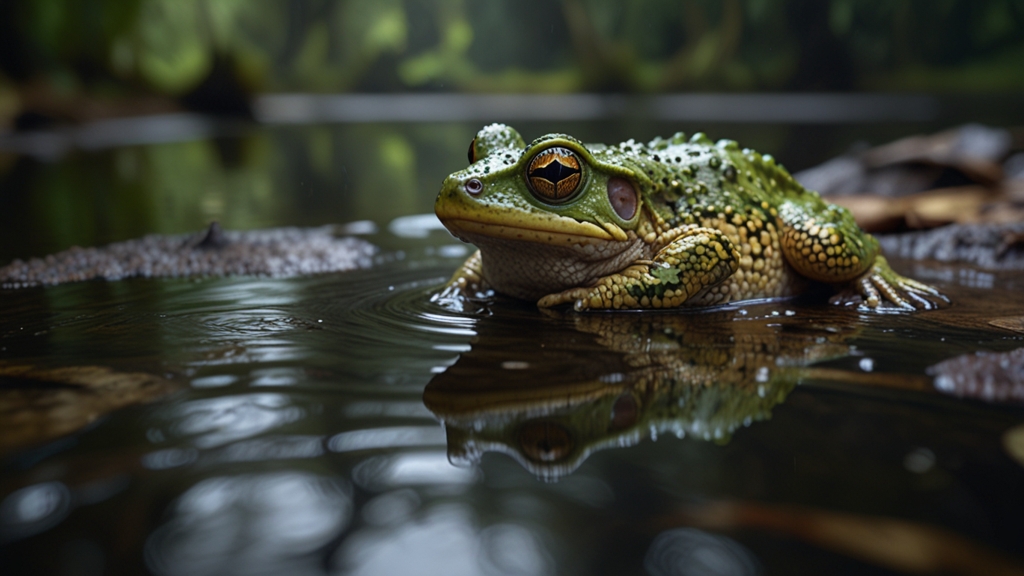Spellbinding Fun Facts That Will Wow Your Audience
Who doesn't love a good fun fact? Whether you're looking to impress your friends, add some spice to a conversation, or simply satiate your curiosity, fun facts are an accessible and delightful way to expand your knowledge. Here are some spellbinding fun facts that are sure to wow your audience!
The Magic of Numbers
Did you know that the number 7 is often considered the world's favorite number? There's something almost mystical about it. Perhaps it's because it appears frequently in various contexts, from the seven wonders of the world to the seven notes in a musical scale, and even the seven colors in a rainbow.
“The number 7 has a mysterious and magical aura, appearing in various cultural and natural phenomena. It’s no wonder that people often find it special.”
Another enchanting numerical fact revolves around pi (π). This mathematical constant is the ratio of a circle's circumference to its diameter and is approximately 3.14159. What’s even more fascinating is that it’s an irrational number, meaning it goes on forever without repeating. Pi has been computed to over a trillion digits beyond its decimal point, but even its first few digits have fascinated mathematicians and laypeople alike for centuries.
Natures Marvels
Nature is full of wonders that never cease to amaze. For instance, did you know that octopuses have three hearts? Two pump blood to the gills, while the third pumps it to the rest of the body. These fascinating creatures also possess blue blood due to a copper-rich protein called hemocyanin, which is efficient at transporting oxygen in cold, low-oxygen environments.
Another nature-based wonder is the immortal jellyfish (Turritopsis dohrnii). This incredible creature has the astonishing ability to revert to its juvenile form after reaching maturity, effectively making it biologically immortal. While they can still be killed by disease or predators, their potential to avoid natural death is unparalleled in the animal kingdom.
Curious Creatures
Animals often exhibit behaviors and characteristics that can leave us spellbound. Take tardigrades, for example. These microscopic organisms, also known as water bears, are virtually indestructible. They can survive extreme temperatures, radiation, dehydration, and even the vacuum of space. Tardigrades have adapted to such an extent that they can enter a cryptobiotic state, wherein they lose almost all their water content and halt their metabolic activities to endure the harshest conditions.
“The resilience of tardigrades is a testament to the extraordinary adaptability of life. Their ability to survive in such extreme environments continues to baffle scientists.”
Ever heard of a mantis shrimp? These colorful marine crustaceans have the best visual systems in the animal kingdom. Their eyes contain up to 16 types of photoreceptor cells, compared to only three types in humans. This enables them to perceive an incredibly broad spectrum of colors, including ultraviolet light, which is invisible to us. Additionally, mantis shrimps have exceptionally powerful claws that they use to hunt prey. Their strikes are so fast they can create cavitation bubbles, which produce heat, light, and sound when they collapse.
Historical Oddities
History is replete with strange and intriguing facts. For example, Cleopatra, the last active ruler of the Ptolemaic Kingdom of Egypt, lived closer in time to the moon landing (1969) than to the construction of the Great Pyramid of Giza (circa 2580–2560 BCE). This realization often comes as a surprise, as it challenges our perception of historical timelines.
Here’s another historical curiosity: Napoleon Bonaparte was not as short as commonly believed. The myth of his short stature possibly arose from a mistranslation of French measurements. He was actually around 5 feet 7 inches tall, which was slightly above average for a Frenchman of his time.
Language and Literature
Languages and literature also have their own set of enchanting facts. Did you know that the longest word in the English language, according to the Oxford English Dictionary, is 45 letters long? The word is “pneumonoultramicroscopicsilicovolcanoconiosis,” a type of lung disease caused by inhaling very fine ash and sand dust.
In literature, one of the most captivating facts is that William Shakespeare invented over 1,700 words, many of which we still use today. Words like "bedazzled," "swagger," and "lackluster" can all be attributed to the Bard’s innovative use of the English language. His creativity continues to leave a lasting legacy on modern vocabulary.
“Shakespeare’s inventive use of language has enriched the English vocabulary, making his works timeless and ever-relevant.”
Conclusion
From the wonders of nature and the curious behaviors of animals to historical oddities and the magic of numbers, these fun facts are sure to leave your audience in awe. Whether you’re sharing them at a dinner party or using them to break the ice in a conversation, these spellbinding tidbits of knowledge are bound to make a lasting impression. So go ahead and sprinkle some of these fascinating facts into your everyday interactions, and watch as you captivate and amaze those around you!









